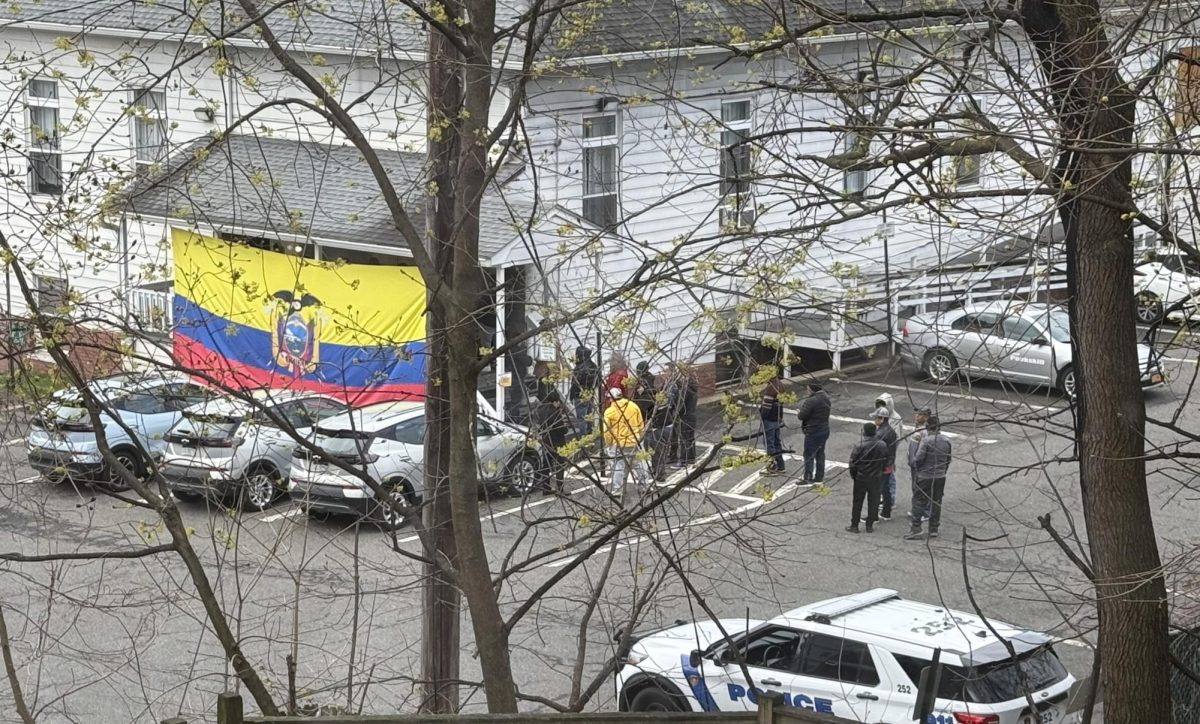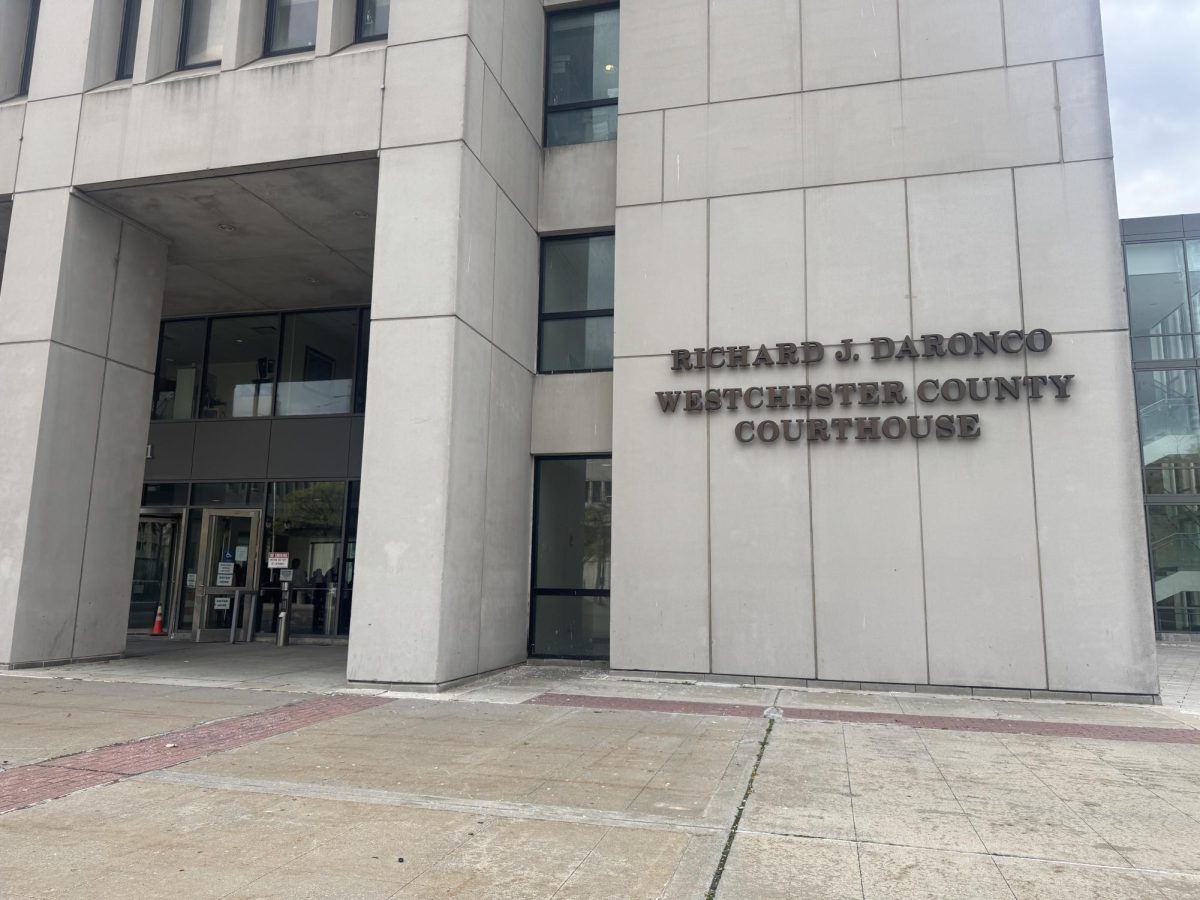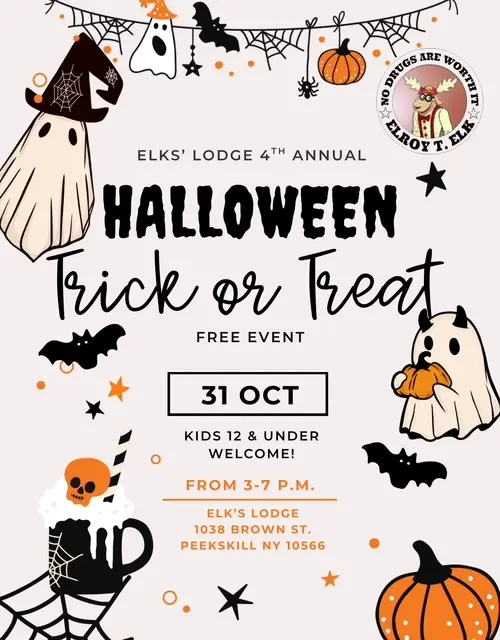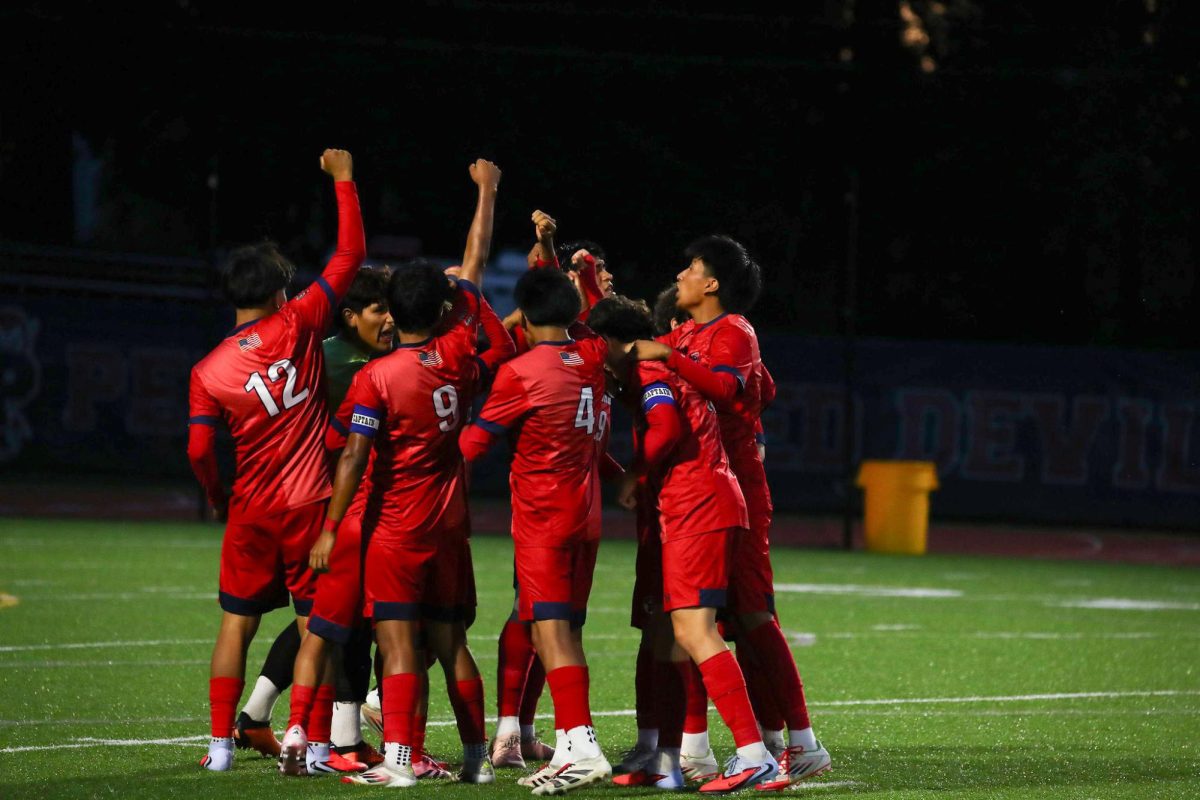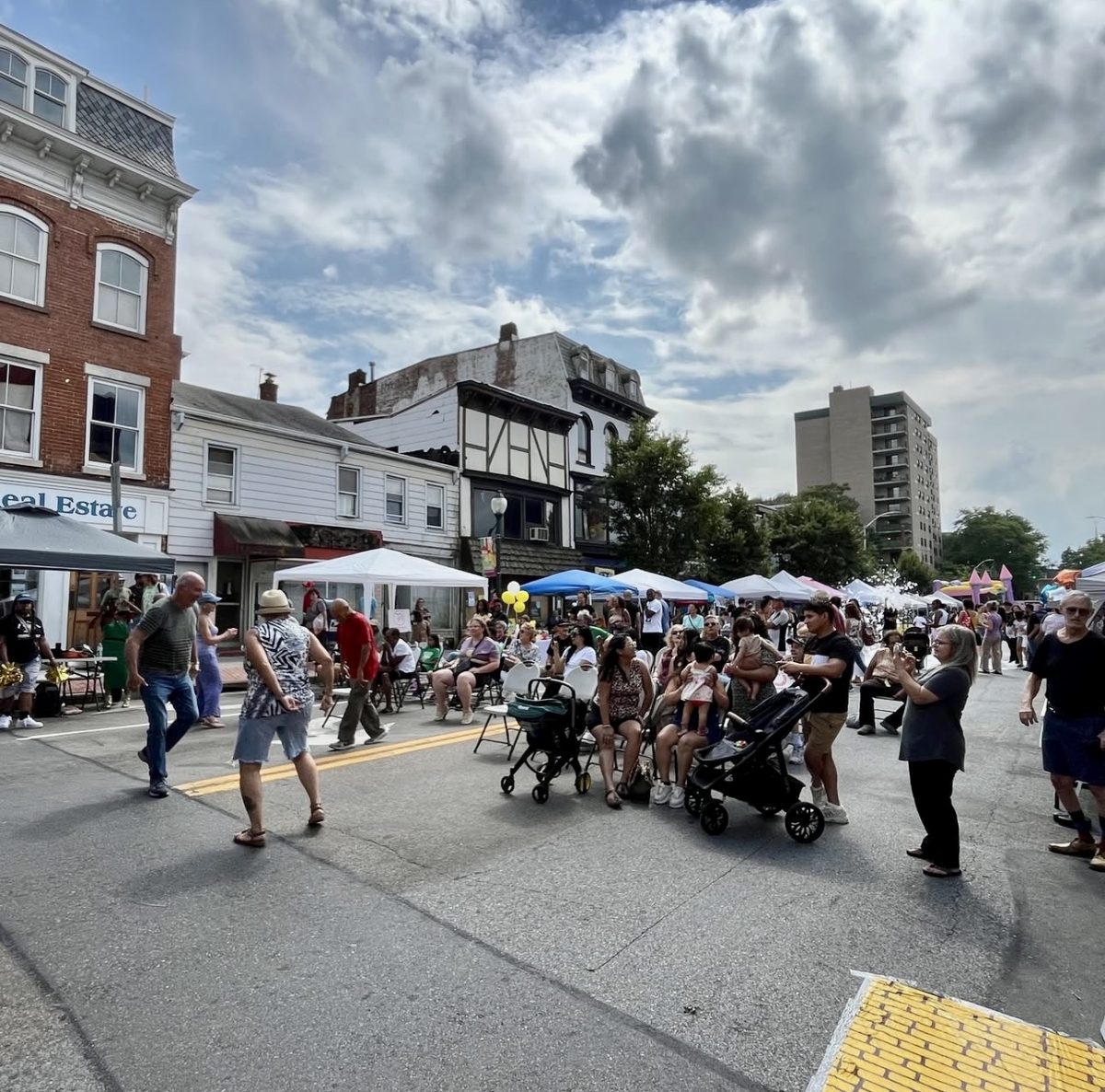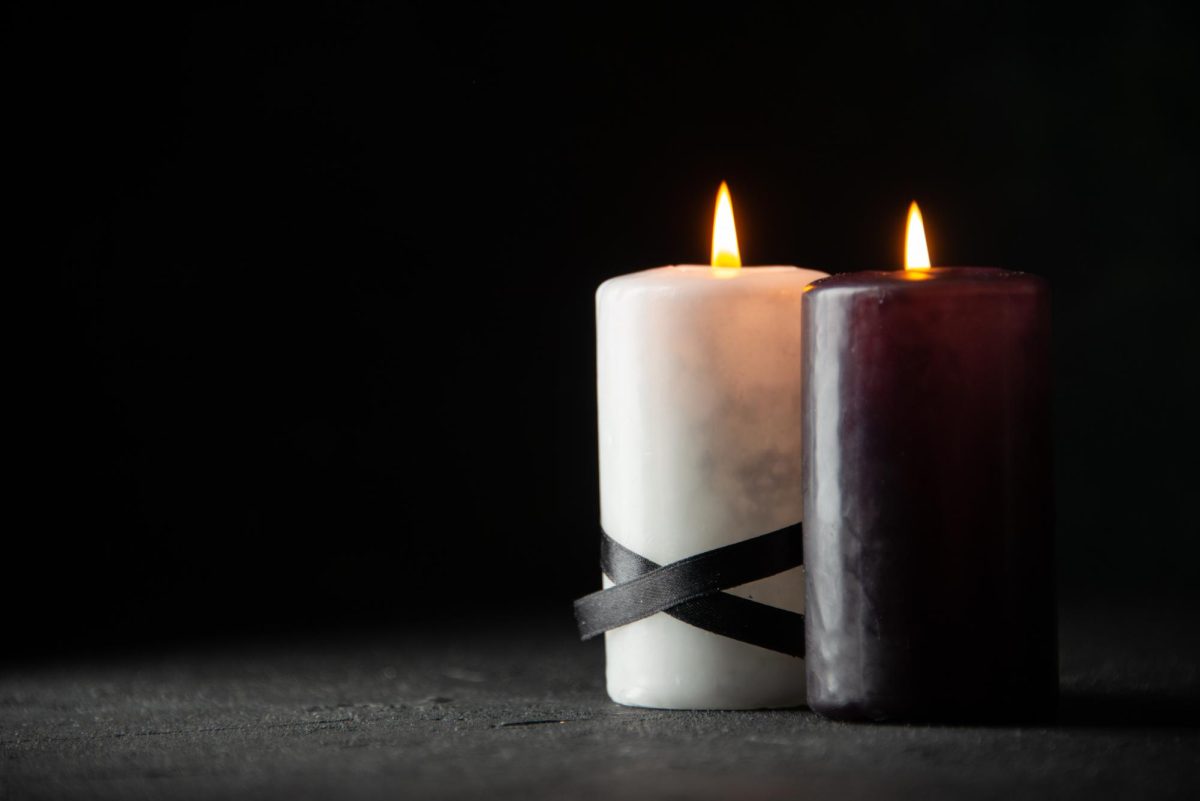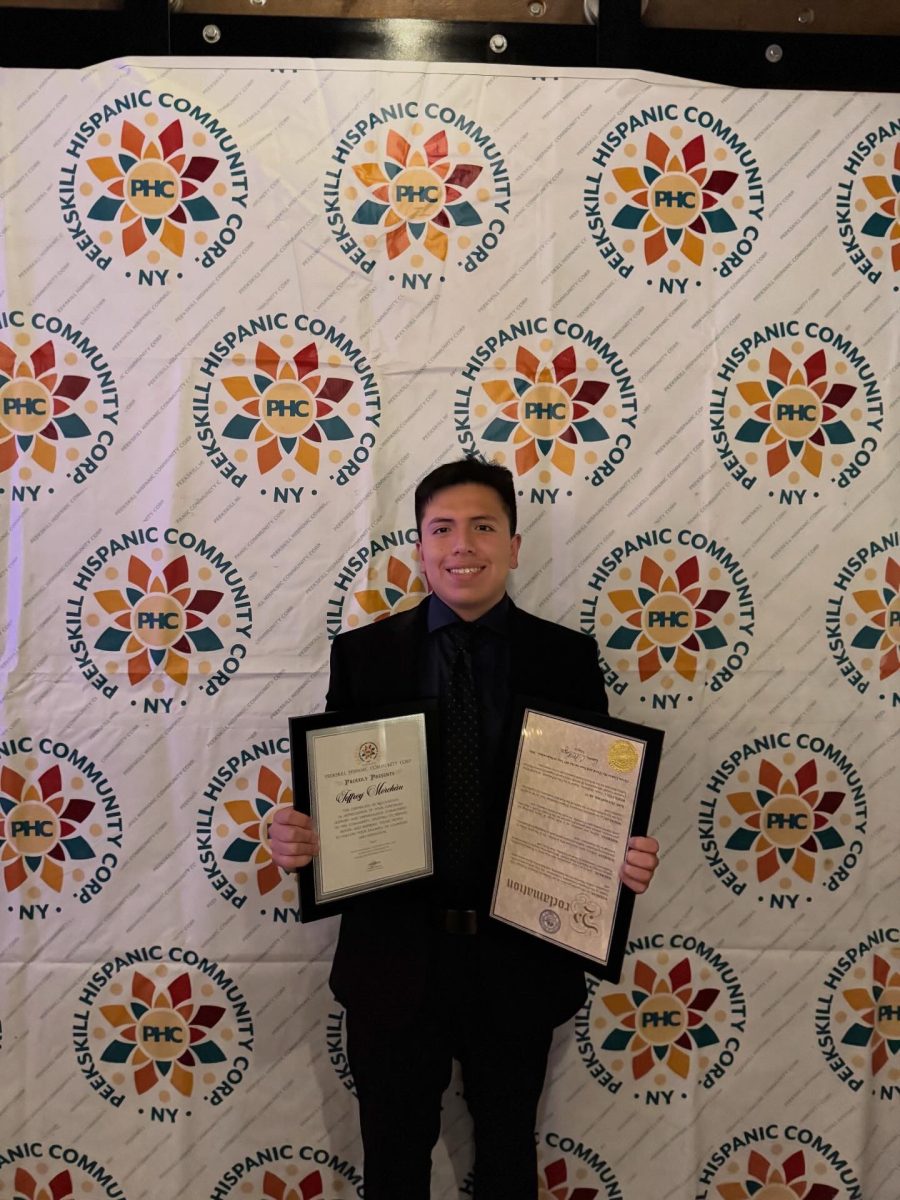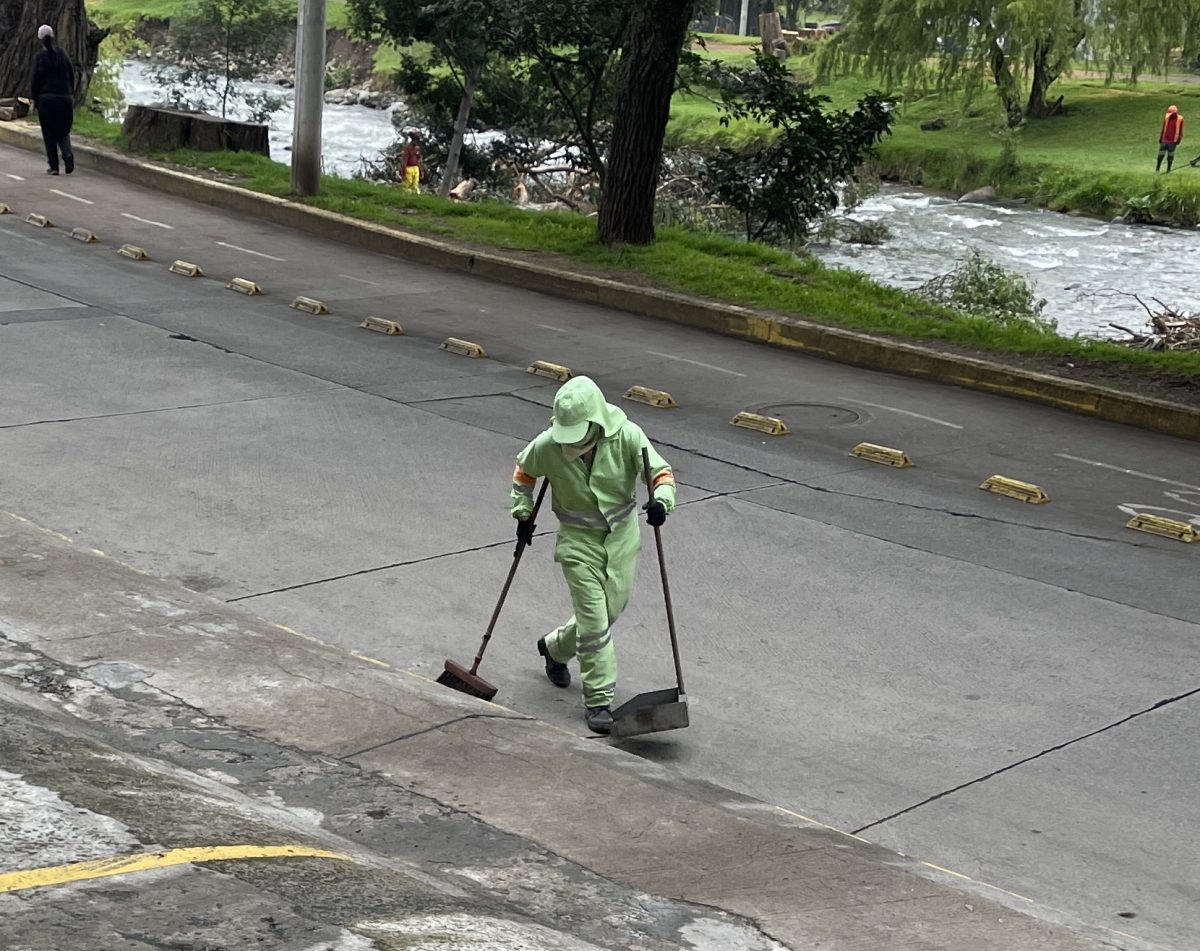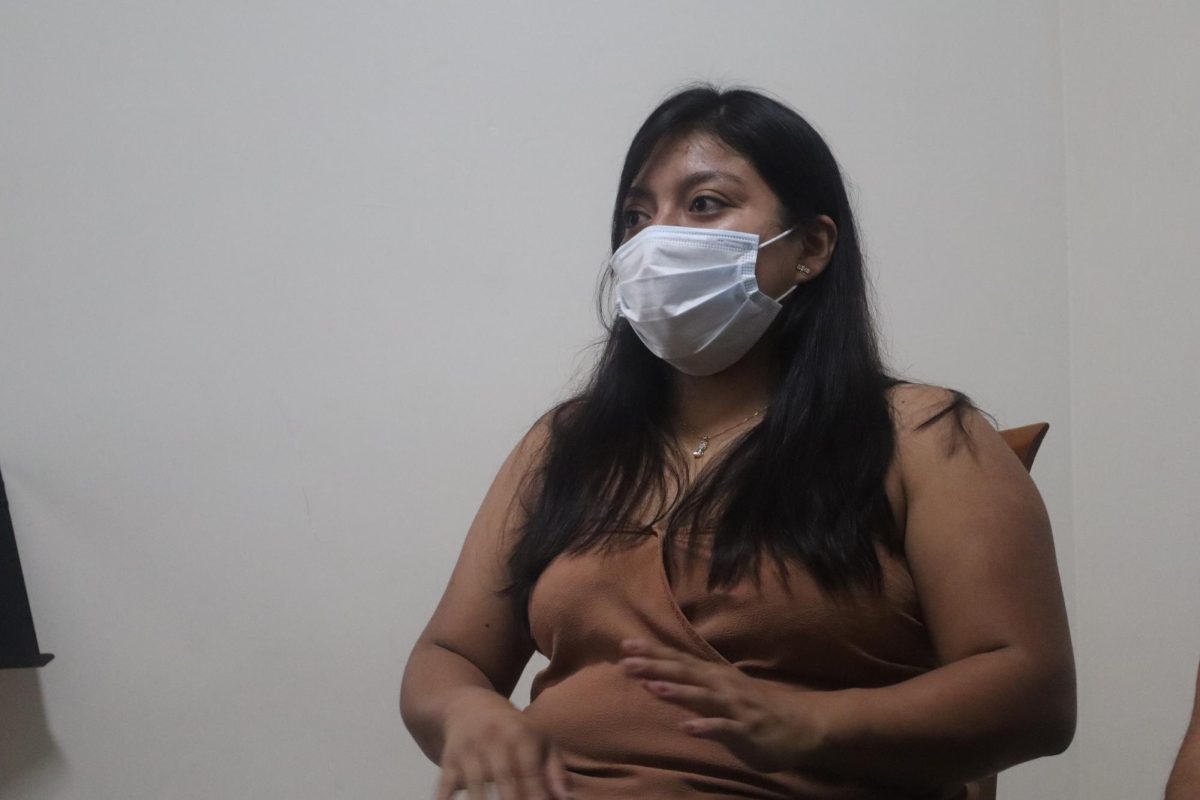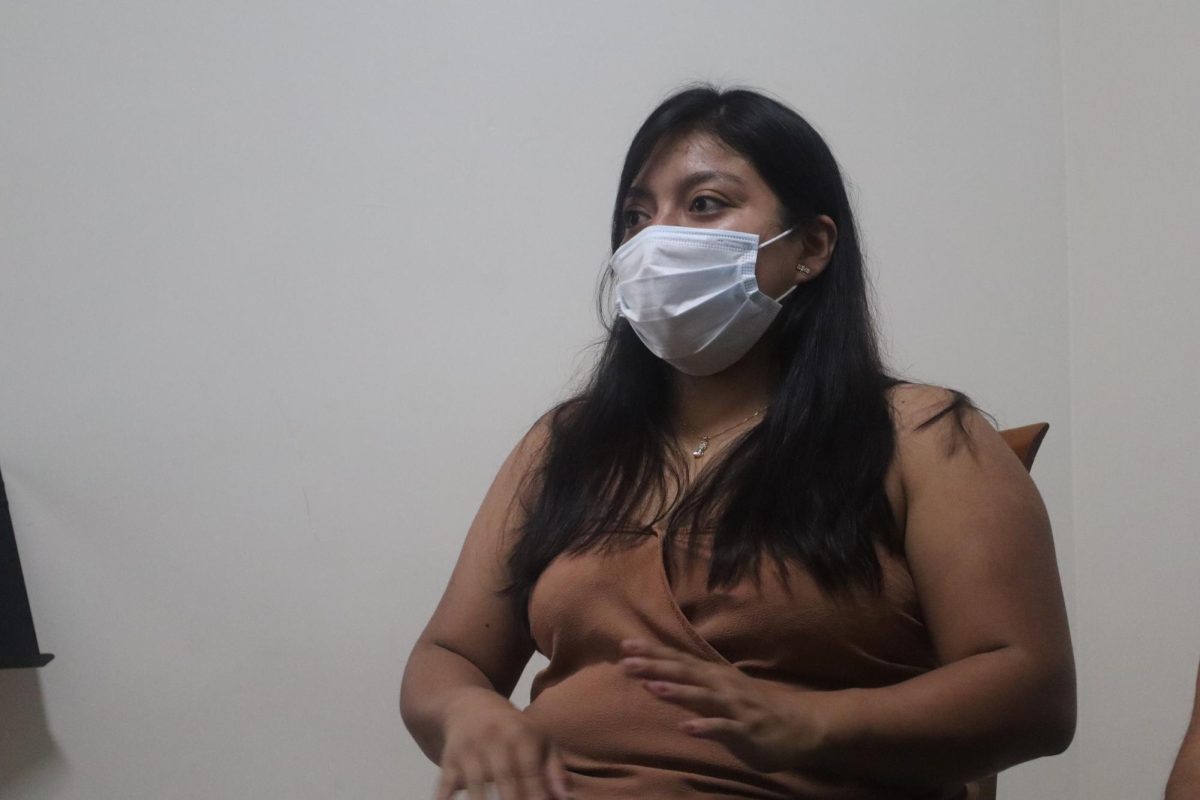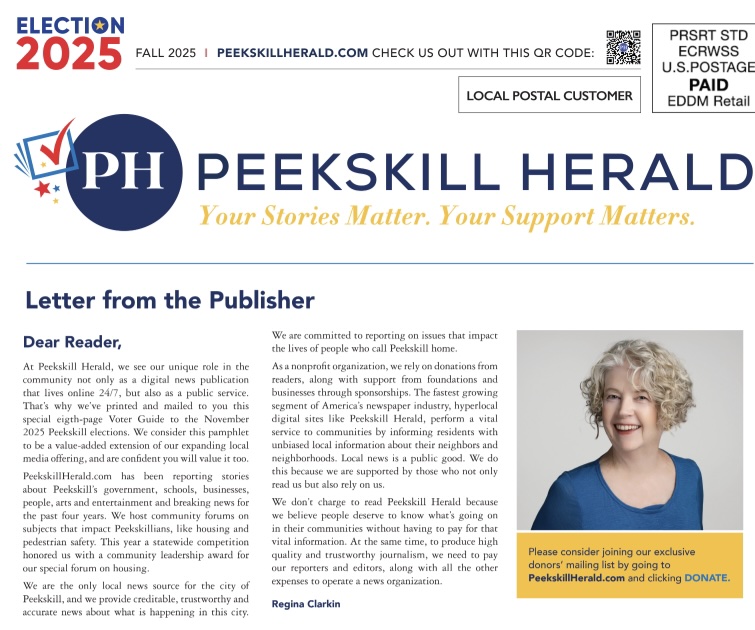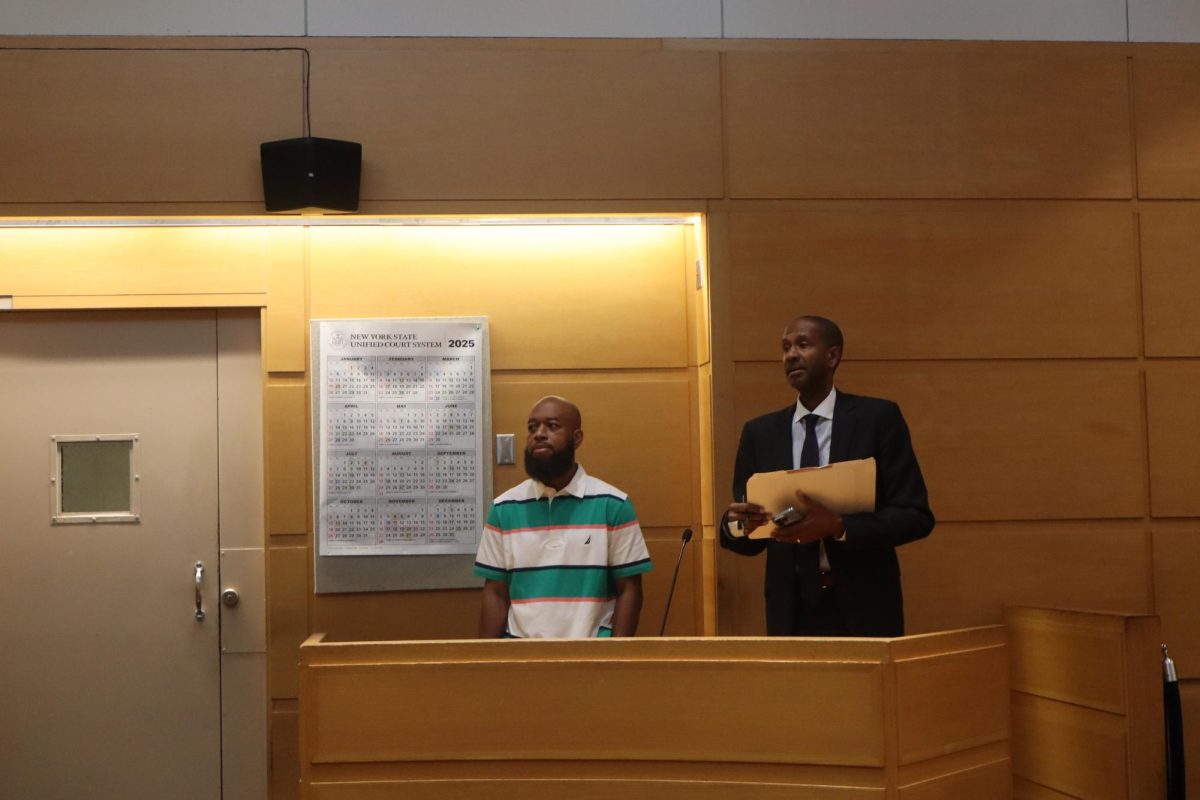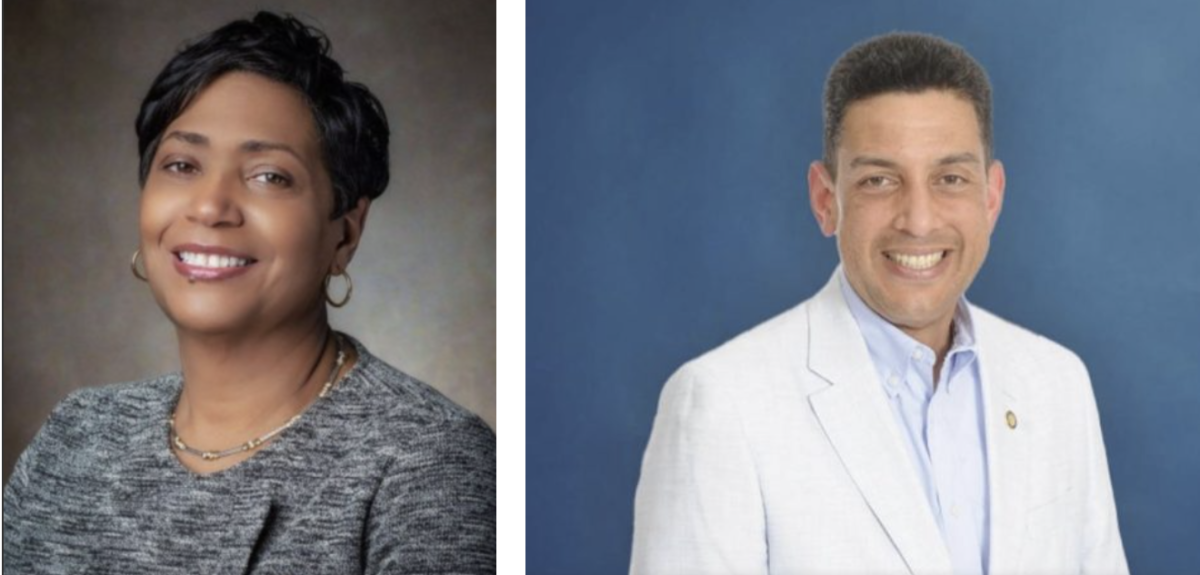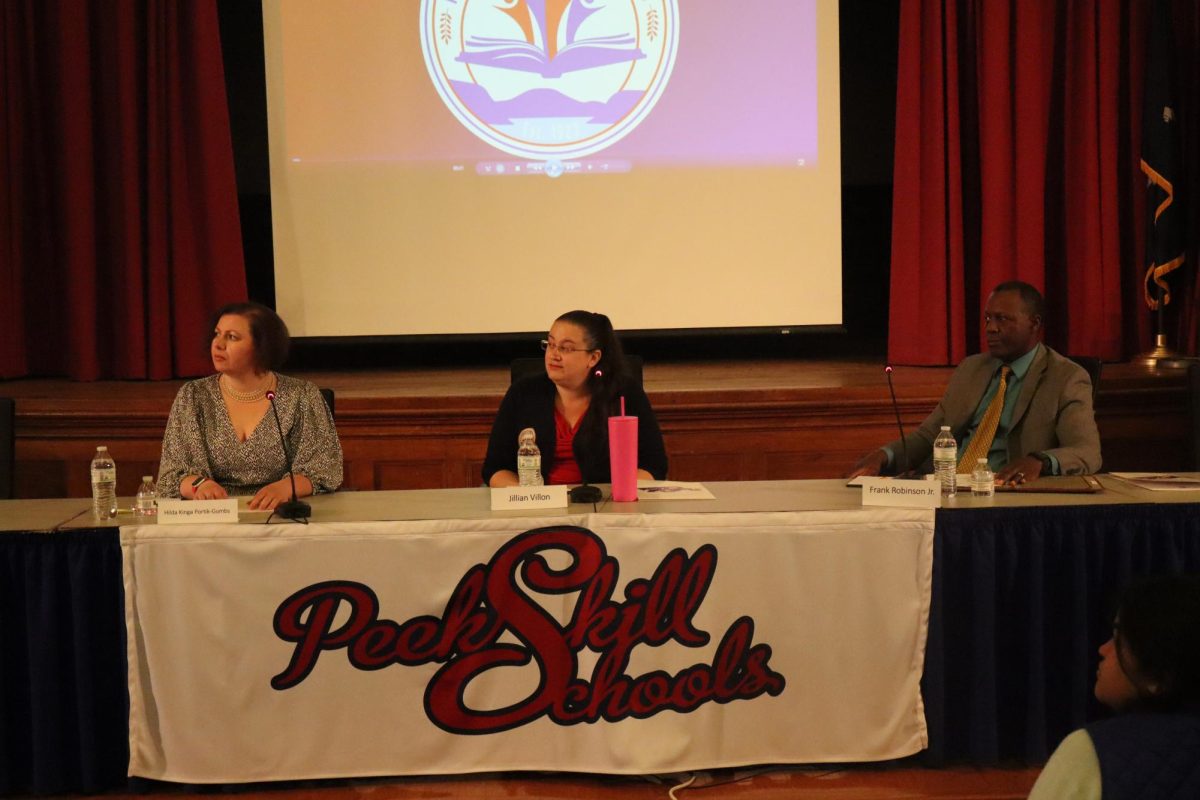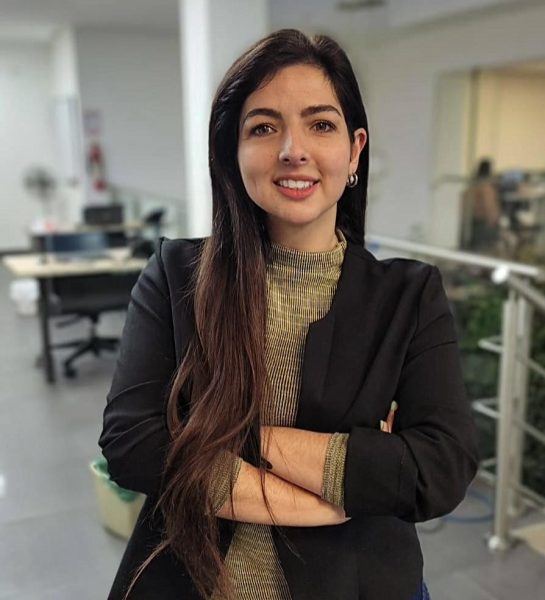Ecuadorians who are Peekskill residents waited their turn to vote in their country’s election, sheltered by their flag on Sunday. Some 1,041 people came to Peekskill’s Youth Bureau to decide the future of their country’s leadership in a closely contested presidential runoff between Daniel Noboa and Luisa González.
The former, representing the National Democratic Action (ADN) movement, claimed victory, according to preliminary results from the National Electoral Council (CNE). CNE president Diana Atamaint stated in a press conference that—with 90 percent of ballots tallied—Noboa’s triumph was irreversible.
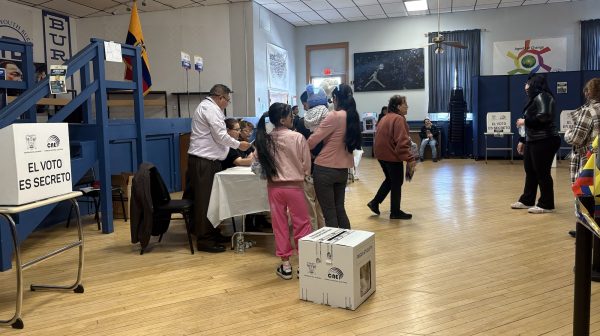
But before supporters of the ADN candidate took to the streets to celebrate, Ecuadorians were gripped by uncertainty. Even those living abroad expressed concern over the election’s outcome. In Peekskill, for example, the day unfolded in an orderly fashion, yet was filled with doubts.
Outside the designated building at 828 Main Street, adjacent to City Hall, a large tricolor flag was stretched out. Behind it, a line of men waited to enter the facility, where four polling stations (two for women and two for men) had been set up to receive votes.
Between Hope and Uncertainty
While waiting in line, Richard Burgos remained hopeful. The candidate he believed should win the presidency, he said, could change the fate of the country he left 50 years ago. “He holds the future not only of those living there, but also of those of us who live here,” he explained.
For the Peekskill resident originally from Guayaquil, this election held great importance: the elected president would need to address Ecuador’s economic situation and resolve the ongoing security crisis. “Many migrants might be able to return to their homeland,” he believes. And for those for whom returning isn’t a viable option, Burgos hopes the new president will strengthen ties between Ecuador and the United States, making it easier for his compatriots to regularize their immigration status.
Burgos was not alone in his optimism. Many waiting in line shared a belief that the new president would rise to meet the challenges Ecuadorians face. Still, not everyone felt the same sense of confidence. Indecision, uncertainty, and even apathy could be felt throughout the voting day in Peekskill.
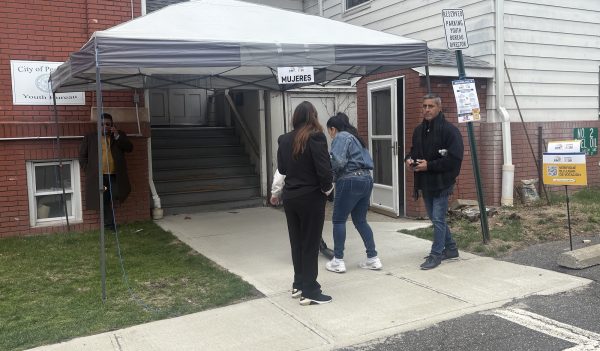
Ruth Viracocha, for instance, was the only member of her family to vote. Others in her household felt it wasn’t worth it. “They’ve built their lives here and no longer see voting as a necessity.” For the Cuenca native, however, voting is a civic duty. She believes her vote can, in fact, make a difference.
When thinking about Ecuador’s future, she can’t help but reflect on her past—those days in her childhood and youth when her nation did not top global rankings for crime and insecurity. “Those are the days we need to return to,” she declared.
Going Back Is Not an Option
Regarding the current challenges facing migrants in the United States, especially the rising wave of deportations, Viracocha feels that whoever takes office will likely have little to offer Ecuadorians abroad. She also doubts that even strong diplomatic ties with the United States will have much influence on anti-immigration policies.
Despite this, Viracocha believes most Ecuadorians are not ready to leave the U.S. “The situation is very tough and dangerous for those who are undocumented, but still, everyone feels there are more opportunities here,” she said.
Carlos Lojano believes that the candidate who reaches the presidency must prove with actions that real change is coming to the country. Only then can migrants be convinced to return. (Ariana Almeida-Martínez)
Carlos Lojano agrees. For the Peekskill resident, a better quality of life is what keeps so many of his compatriots in the U.S. He has lived here for 28 years and still feels the nostalgia of having left his homeland. Even so, the idea of returning doesn’t cross his mind.
“Even if the new president promises that everything will change and outlines a better future for Ecuadorians, it must be backed by actions. That’s the only way to convince people to return. Otherwise, it’s just talk,” he said.
An Ecuador in Peekskill
According to Fabiola Jiménez, second secretary at the Ecuadorian Consulate in New York, the democratic exercise held in Peekskill on Sunday was an exact replica of the process in Ecuador. The same protocols applied, including the prohibition against photographing completed ballots.
“People were informed that they may carry their phones, but using them to take photos while voting is not allowed,” she clarified. While the Consulate is not authorized to impose penalties, it has worked actively to raise awareness of the rule.
In Ecuador, as of midday Sunday, 71 people had been cited for violating the measure. The CNE determined that photographing a ballot constitutes a serious electoral offense. According to the Democracy Code, fines for this infraction range from $9,870 to more than $32,000.
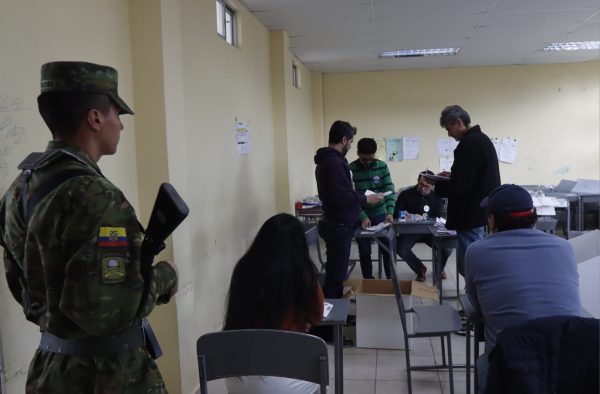
In contrast, the election in Peekskill was peaceful and well-organized. Polling stations opened at 7:00 a.m., and by 9:00 a.m., the first voters had already arrived. Jiménez noted that very few left voting until the last minute, with most arriving early to cast their ballots.




